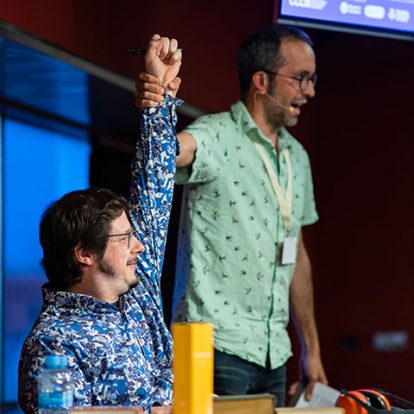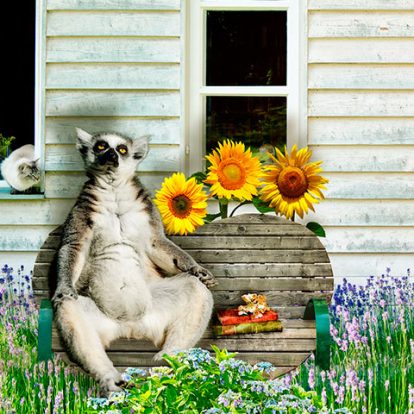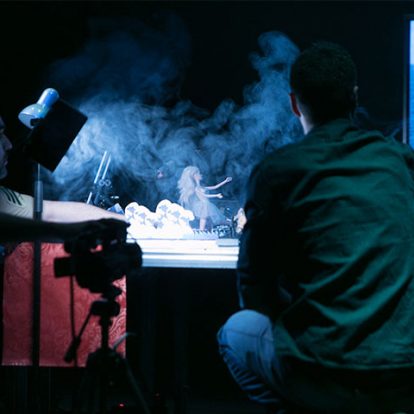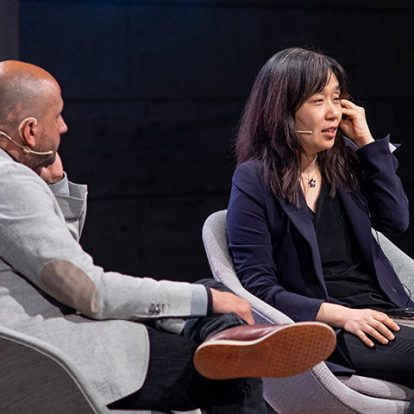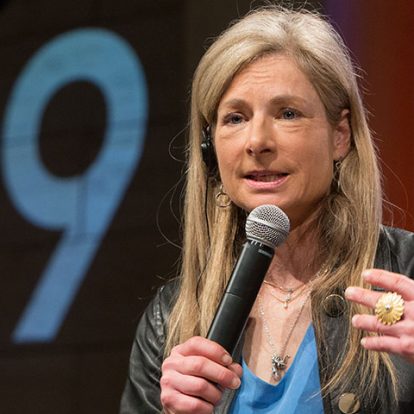New formats and great classics. Literature in pictures at Canal Alfa
Eulàlia Guarro
02 March 2017
Historically, the artistic disciplines have mixed together, nourishing and inspiring each other. Each one having its own language, they convey the stories and contribute with their own idiosyncrasies and genuine tools. But what happens when we mix different languages and open the narrative space?
Are we creating new ways of consuming literature, films, or even storytelling? Alpha Channel explores these new narrative possibilities, while still giving us audiovisual interpretations of literary works and documentaries that bring us closer to some of the most renowned writers.
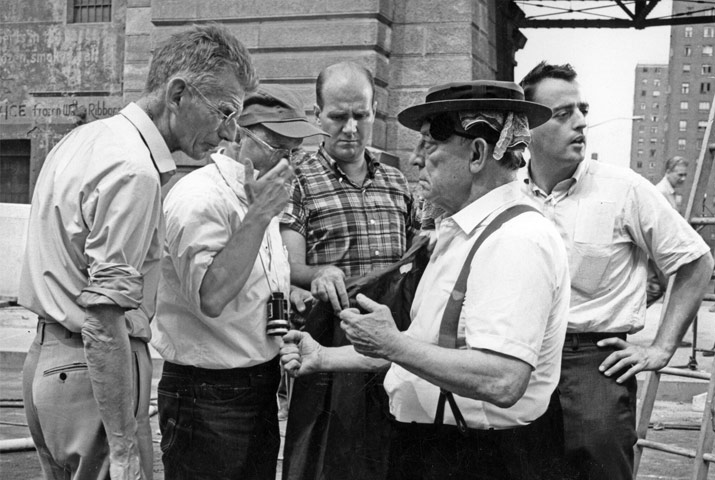
VR Hybridization and new narrative possibilities
Images are becoming more present in our daily lives. The screens gain prominence and the technology offers new narrative formats and a greater immersion. The aim is not new: to cancel the perception of reality for delving us into the performance. But, can we deceive our senses to perceive as real a virtual thing? In the talk “Immersion in virtual worlds (Immersió en mons virtuals)”, Jose Valenzuela will explain us how we enter this world of illusions and how our brain reacts so it can perceive as real what, in fact, it is not. Sounds like science fiction to you? Well, that was the same way of thinking of the Virtual Reality precursors. And that is because, in films and literature, there has been room for the virtual universes before having the technical mechanisms to make them possible. We will see some of these examples and will discuss the evolution of this language in the discussion “I don’t care what people say as long as I get VR: virtual reality as a new subjects generator (Dona’m VR i digue’m burro: la realitat virtual com a generadora de noves temàtiques)” by Jose Luis Farias, Francisco Asensi and Flavio Escribano, trying to imagine what the future will bring us beyond the VR.
And from the assumptions to the facts: thanks to some local producers, we will have the opportunity to find out new narrative formats and try out their reading experience through the presentation of some examples, from interactive comics to videogames or literary applications. Their creators will speak at the panel discussion “From book to screen and beyond (Del llibre a la pantalla i més enllà)”.
Evenings with the writers: Beckett, Berger and Bukowski
Nevertheless, we do not neglect the video projections. The Alpha Nights continue with the arrival to Barcelona of three documentaries based on three great writers: Samuel Beckett, John Berger and Charles Bukowski.
In “NotFilm” his director, Ross Lipman, documents the creative process of the film “Film”, Samuel Beckett’s cinematographic incursion starring Buster Keaton. This is an exploration of Beckett’s universe and its adaptation to the cinematographic media through film archives and unpublished testimonies describing the complexity of this challenge.
Also as a film essay, in “The Seasons in Quincy: four portraits of John Berger” four directors , some of them close friends of the intellectual, as Tilda Swinton or Colin Mac Cabe, present us their individual portraits of John Berger. Recorded over a year, these four independent pieces form a documentary that brings us closer to the figure of Berger from different angles. They are as varied as the spring is from autumn, but under the constant scene of the alpine mountains of Quincy, where the writer and art critic lived.
Just as it is the visit that the journalist Silvia Bizio made to Charles Bukowski in 1981, and that has been recovered recently in the documentary “You Never Had It. An Evening with Bukowski”. A January evening at the California home of the writer, the wine and tobacco help to soften a conversation about the big issues that deals with the writer’s literature: sex, love and humanity.
Gothic literature, Jo Nesbø’s dystopias and probable stories of Neil Gaiman: the world seen in series
Following the path we started at the last Edition of Kosmopolis, Alpha Channel explores the literary influences we have also in the TV series that come from different parts of the world. This is the case, for example, of “Penny Dreadful”, which serves as a starting point to celebrate the 120th anniversary of the publication of “Dracula” by Bram Stoker and to revisit the different film adaptations that have been made with Raquel Crisóstomo and Serielizados. The Gothic literature is brought to the screen.
Similarly, we take advantage of the visit of Jo Nesbø, the Norwegian writer, creator of the “Occupied” series, to talk about one of the central themes of Kosmopolis 2017: climate change. And finally, we will talk about the “Likely Stories” by Neil Gaiman.
The universe of Kosmopolis in short films and Roald Dahl for children
As every year, we have a selection of animated short films, visual experiments and reports that we will watch in the afternoons with Alpha Channel, approaching literature through the cinema. We will have works based on poems, stories and reflections on the themes of the festival reflected through different audiovisual disciplines and introductions such as Project Detroiters with slamers from the North American city and from the program Rivers of ink (Rius de Tinta) from betevé devoted to literature.
And for the children, the Alpha Kids gets some of the most recognized stories and characters of Roald Dahl with the premiere of “Revolting Rymes“: The Adventures of Little Red Riding Hood, Snow White and the Three Little Pigs have been newly adapted in this approach to classic fairy tales.
An edition full of stories and new ways of telling them across the screen. Welcome to Alpha Channel!

